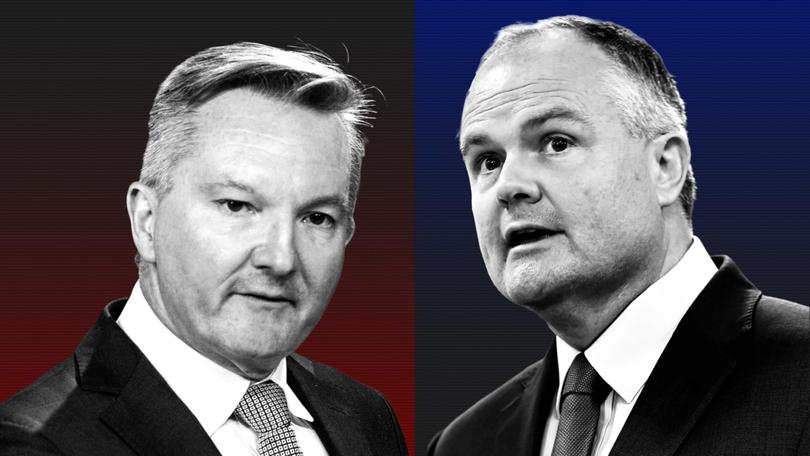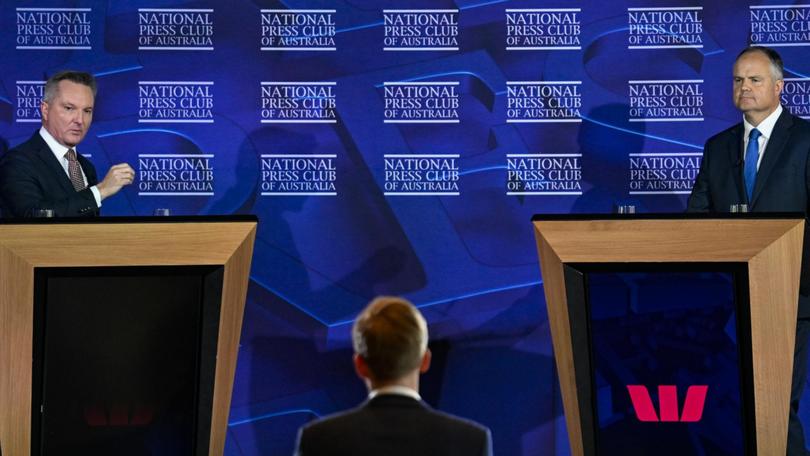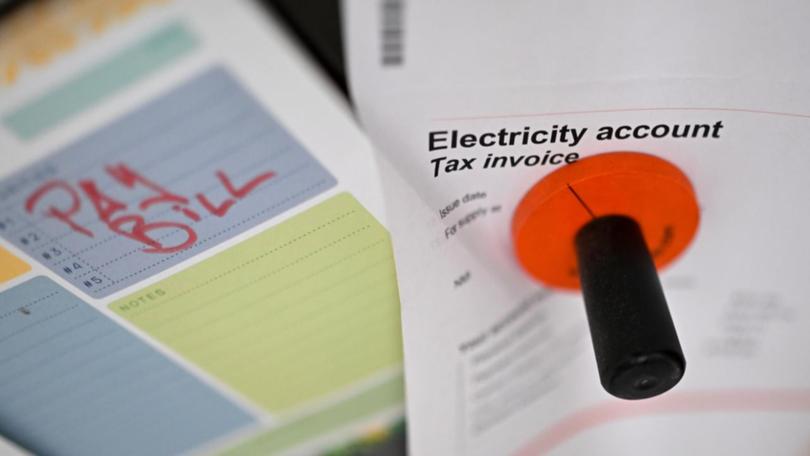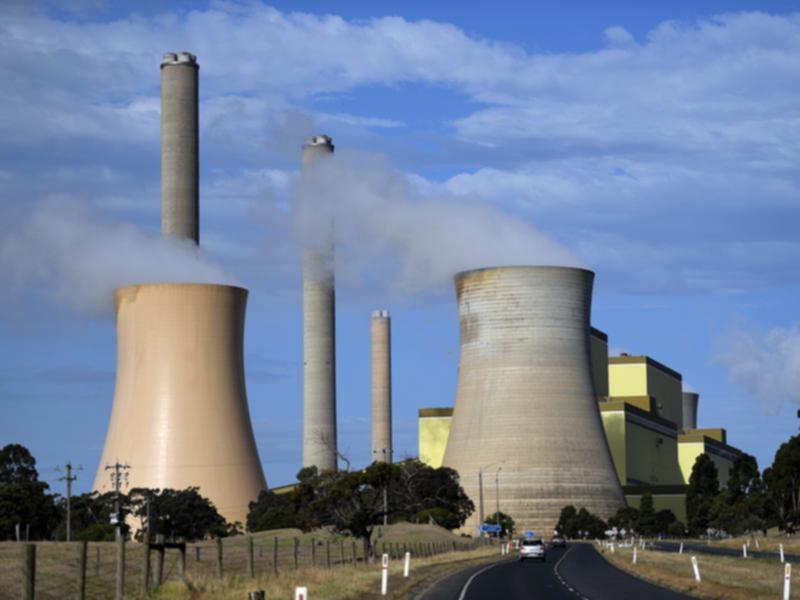Federal election 2025: Charged energy debate hands voters powerful choice between renewables and nuclear
Australians will have to choose between an electricity grid based on renewables and a dramatic shift to nuclear energy at the polls.

Energy Minister Chris Bowen and Opposition shadow Ted O’Brien have both promised to lower household bills, offering voters a stark choice between an electricity grid based on renewables or a dramatic shift to introduce nuclear power to the future mix.
While the Coalition has vowed to reduce household electricity bills by around three per cent through its cornerstone east coast gas reservation policy, Labor has refused to put a price on reductions, instead attacking the expense of nuclear energy.
In a fiery National Press Club debate, both Mr Bowen and Mr O’Brien said Australia faced a “fork in the road,” presenting radically different approaches to achieve short- and long-term hip pocket relief to struggling consumers.
Sign up to The Nightly's newsletters.
Get the first look at the digital newspaper, curated daily stories and breaking headlines delivered to your inbox.
By continuing you agree to our Terms and Privacy Policy.Mr Bowen insisted Labor’s pledge to reach 82 per cent renewable energy generation by 2030 was the most reliable costed option to achieve long term cost-of-living relief.
But Opposition climate change and energy spokesman Mr O’Brien hit back that the Coalition’s own costed energy policy was “44 per cent cheaper” than Labor’s and would “not spend $264 billion” to put the country’s eggs in one basket with a renewables-only strategy.
In an assured performance, Mr O’Brien promised a future where Australia would be “strong” and “fiercely independent,” presenting a three-point plan that would start by refusing to close coal power stations “prematurely.”
He then pledged to immediately deliver lower bills for the Coalition’s first year in office by freeing up more gas in the energy market.
“We believe we need to pour more gas into the market, more gas and a lot of it and get it to where it needs to be, Australian gas for Australians,” he said in his opening pitch.

“We believe that we need to continue with renewables and storage, but in a sensible way, one that doesn’t fight against regional communities, but carries them with us,” he continued.
“In the near term, our plan is to replace retiring coal plants with zero emissions nuclear energy, bringing us back to where we should be lined up with other advanced economies around the world,” he added.
The Coalition has mooted its controversial proposal to convert seven coal-fired power station sites to nuclear power between 2035 and 2050 as the centrepiece of its vision to save taxpayer dollars and bolster Australia’s energy security.
But its immediate plan is to force gas exporters to divert up to 100 petajoules of supply that would otherwise flow to the global energy market by imposing a “gas security charge.”
The modelling for the east coast gas reservation plan, released by Frontier Economics earlier this week, promises a 15 per cent reduction in gas bills for industrial customers and an eight per cent decrease in wholesale electricity prices.
The analysis by the independent consultancy calculates the plan will cut wholesale costs from $14 a gigajoule to $10.
This would translate into modest savings of seven per cent for gas and three per cent for electricity for households, meaning a $50 to $70 yearly saving for families based on average bills.
This compares to Labor’s $75 a quarter rebate, which has been extended until the end of 2025, with no guarantee of continuing.
Mr O’Brien said the Coalition policy, which has been strongly criticised by the gas industry, would provide energy bill relief for 2025-2026 but he did not commit to its extension.
In the blunt and lively debate, both men frequently interrupted each other, accusing their opponent of misleading the public with flawed modelling and hiding the true costs of their energy plans.
Tensions in the room were raised by a brief protest by a climate activist who was heard shouting “when are you going to stop” before being hustled out of the room.
After opening statements, Mr Bowen immediately charged he had “seen more detail in a Chinese menu” than in the Coalition’s gas plan, waving the Frontier Economics report at Mr O’Brien.
The Coalition spokesman fired back that the Government’s energy plans would fit in a “Chinese fortune cookie”.
He then demanded Mr Bowen apologise for Labor failing to meet its previous election pledge to make bills cheaper by $275 by the end of its term in 2025.

Instead, the Minister spruiked Labor’s three rounds of energy bill relief, including a March announcement on a further $150 for each household until the end of 2025, and a plan unveiled this week to reduce the price of batteries by 30 per cent.
“The key way to help families with their energy bills is to keep going with our efforts to get more cheaper, reliable energy connected to the grid now, today, not next decade,” he said, taking a swipe at the projected timetable to acquire nuclear power stations.
Mr Bowen remained adamant that renewable energy was the cheapest available, while also conceding that, “energy prices are higher than I’d like them to be, of course they are.”
He pointed to global events beyond the Government’s control as the main reason for higher prices, and the failure to meet the $275 target.
“I think normal Australians at home also look around the world and know that people around the world are dealing with similar issues, countries with different policies in place are dealing with high energy prices,” he said.
The Government has since distanced itself from the price component of the modelling by energy analyst firm RepuTex that calculated the $275 reduction, although it is sticking to its strategy to increase renewables, currently at 46 per cent.
Mr Bowen said the firm could not have predicted the impact of a three-year war in Ukraine and declined to put a price tag on power bills for a second Labor term.
“The pledge I do give is to say energy prices will be cheaper under us than under Mr O’Brien,” he said.
“Anybody who predicts energy prices in this very complicated geopolitical environment, I think, is making a punt. So, I’m not going to do that.
“I am going to say that when the alternative plan is introduced, the most expensive form of energy available in the world, which is nuclear, that’s going to have an impact,” he said.
“Our plan is based on the right mix of renewables … We have a very carefully balanced plan based on all the expert advice, which is the lowest cost pathway,” Mr Bowen added,

He pointed to an Australian Energy Market Corporation Commission report showing a “30 per cent reduction over ten years if we keep going with the current plan.”
Mr O’Brien fiercely defended the Coalition’s nuclear power ambitions, standing by the 44 per cent figure it claims it will save on Labor’s energy plan.
Labor has challenged the accuracy of this figure, but Mr O’Brien said it was based on the Government’s assumptions that everyone in future would drive an EV by 2050 and the need to overbuild the grid to accommodate that.
He said Labor was blind to the fact that nuclear power existed in the energy mix of 32 countries.
“What is it that Anthony Albanese and you know that the United States doesn’t know, Canada doesn’t know, Japan doesn’t know, the United Arab Emirates doesn’t know, India, China,” Mr O’Brien said.
But despite pointing to international standards on nuclear power, he did not rule out pulling Australia out of the Paris climate agreement if it was deemed to be in the “national interest”.

